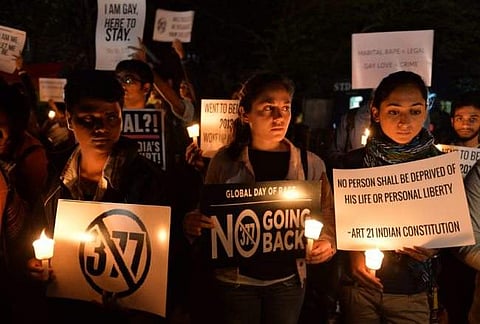

In India, transgenders are the only section of the LGBTQIA+ community that have some sort of rights in comparison to others. The law does not recognise the other genders and sexual identities in the country and continues to criminalise sexual activities that are "against the order of nature". However, transgenders were recognised as the "third gender" in 2014 and the Supreme Court declared that they have equal rights just like any other heterosexual person in the country.
The Supreme Court had also said that the transgenders should be extended the same kind of reservations and benefits that were in place for marginalised communities. Sanjeev Kumar, advocate, Madras High Court, has fought many cases for the transgender community, in fact, his first case was for a transperson named Sapna who was fighting for a hall ticket to write the TNPSC exam,"In 2012, she became the first to be allowed to write the exam under the transgender category," he said.
The NALSA case that was heard in 2014 declared transgenders as the "third gender" and affirmed that the fundamental rights granted under the Constitution of India will be equally applicable to transgender people and gave them the right to self-identification of their gender as male, female or third-gender.
The Madras High Court has also directed the State government to ensure reservations for transgenders in all government jobs, schools and colleges. However, it's implementation is questionable as many transwomen and transmen are having to continue to file petition after petition for their rights.
When we questioned advocates about the possibilities of similar rights being extended to other LGBTQIA+ members, they said that it seemed highly unlikely. "With transgenders, there is a chromosomal difference but with the rest of the community members it is to do with sexual identities, so there is a very low chance that they will be able to avail the same benefits as transgenders," said an advocate.
